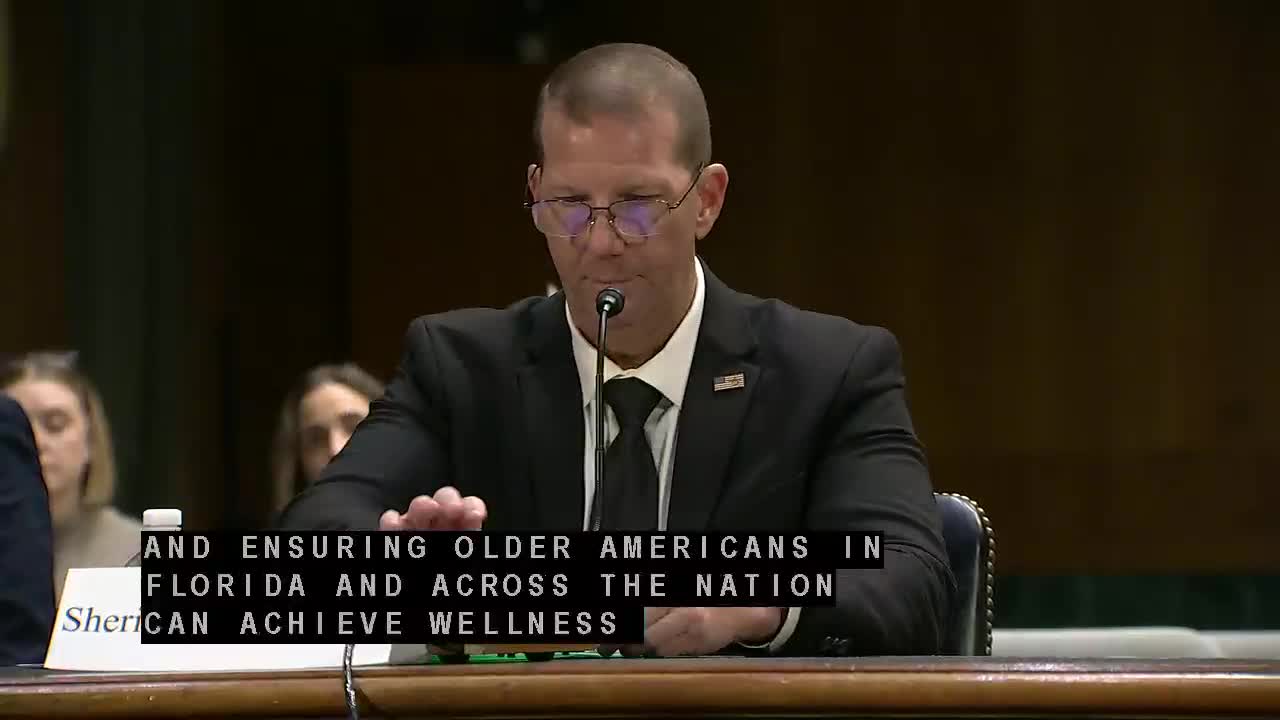Charlotte County sheriff describes local senior outreach, search and fraud‑prevention efforts
Get AI-powered insights, summaries, and transcripts
Subscribe
Summary
The Charlotte County Sheriff and nonprofit advocates told the Senate Aging Committee about local programs to protect seniors, including outreach phone checks, GPS tracking bracelets for those prone to wandering, DNA scent kits, medication disposal, volunteer programs and partnerships to address scams.
Sheriff Bill Prummell of the Charlotte County Sheriff's Office told the Senate Special Committee on Aging that his office runs several programs aimed at protecting older residents and keeping them engaged in the community.
Prummell described a senior outreach program in which volunteers call participants—often adults over 60 who are disabled or living alone—twice weekly. "If we don't hear from them, there's a scheduled time in which we contact them. If we're unable to get in touch with them, we send somebody out to their house to make sure that they are okay," he said.
He outlined programs used by the sheriff's office: Project Lifesaver (GPS tracking bracelets for individuals prone to wandering), DNA scent kits to assist canine units, an operation pill drop for secure medication disposal, vehicle decals that alert deputies to a passenger who may require special attention, key‑tag lockout return programs, and a citizen police academy that many seniors attend. "If there's a need and we can't provide it, we find somebody that can," Prummell said.
On fraud prevention, Prummell recommended proactive community education and a simple household "safe word" family members share to foil jail‑or‑arrest bail scams. He told senators, "A lot of these scams are very, very difficult to track down... many of your offenders are not just outside your state normally, but they're outside the country." Several senators asked about federal resources and whether federal agencies should focus more investigative capacity on transnational elder‑fraud schemes.
Maria Alvarez, executive director of the New York Statewide Senior Action Council and leader of New York's Senior Medicare Patrol activities, described common fraud trends: fraudulent durable‑medical‑equipment billing (for example, multiple back braces charged to a beneficiary's Medicare number), sweepstakes and romance scams, and COVID‑era frauds tied to false mailings or fake new Medicare cards. She described a model of training trusted community partners and peer educators to amplify outreach and said her organization operates helplines and community outreach to reach hard‑to‑reach populations.
The witnesses emphasized that many law enforcement resources and federal investigative thresholds limit pursuit of smaller fraud cases, and that victims rarely recover lost funds.
